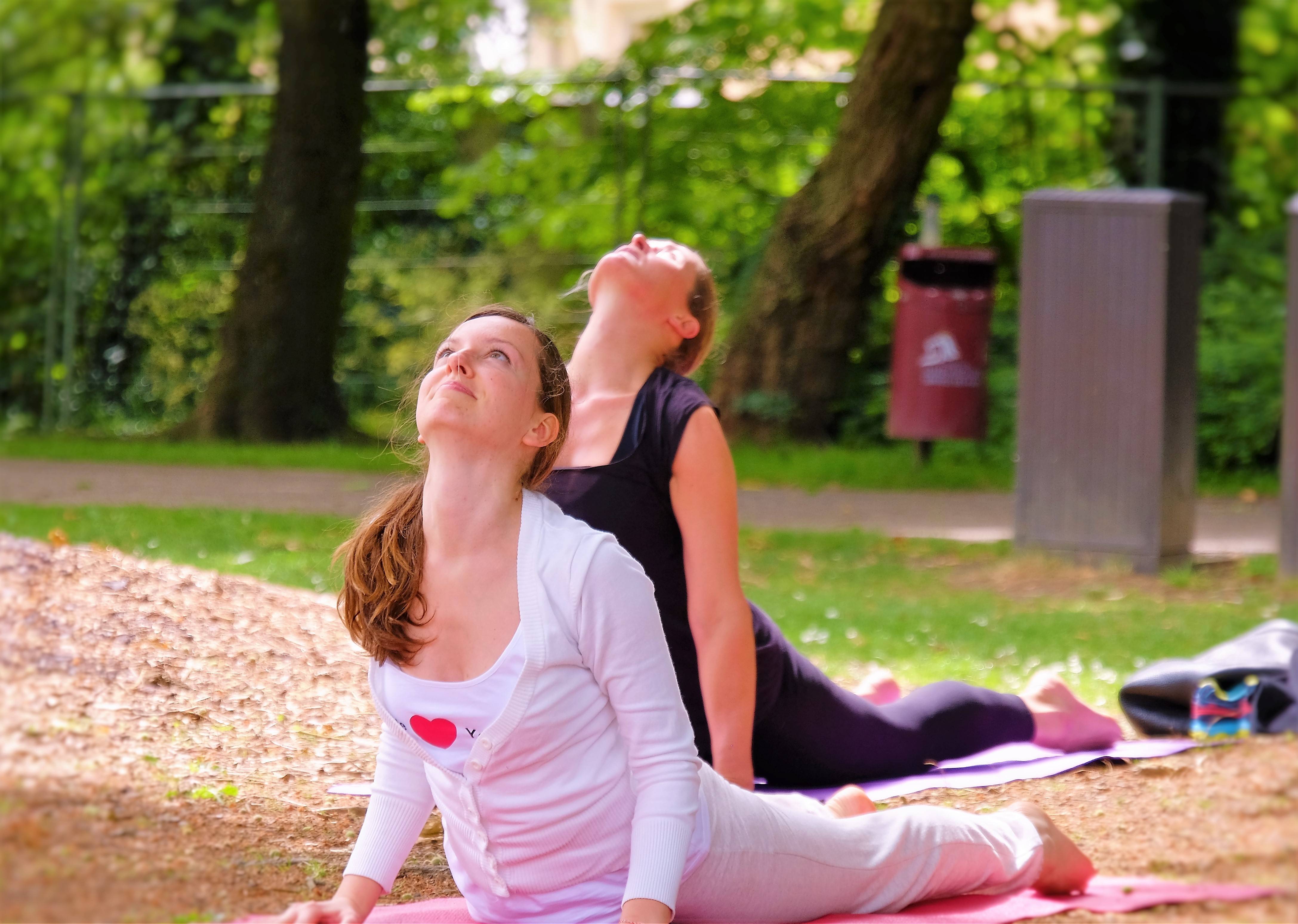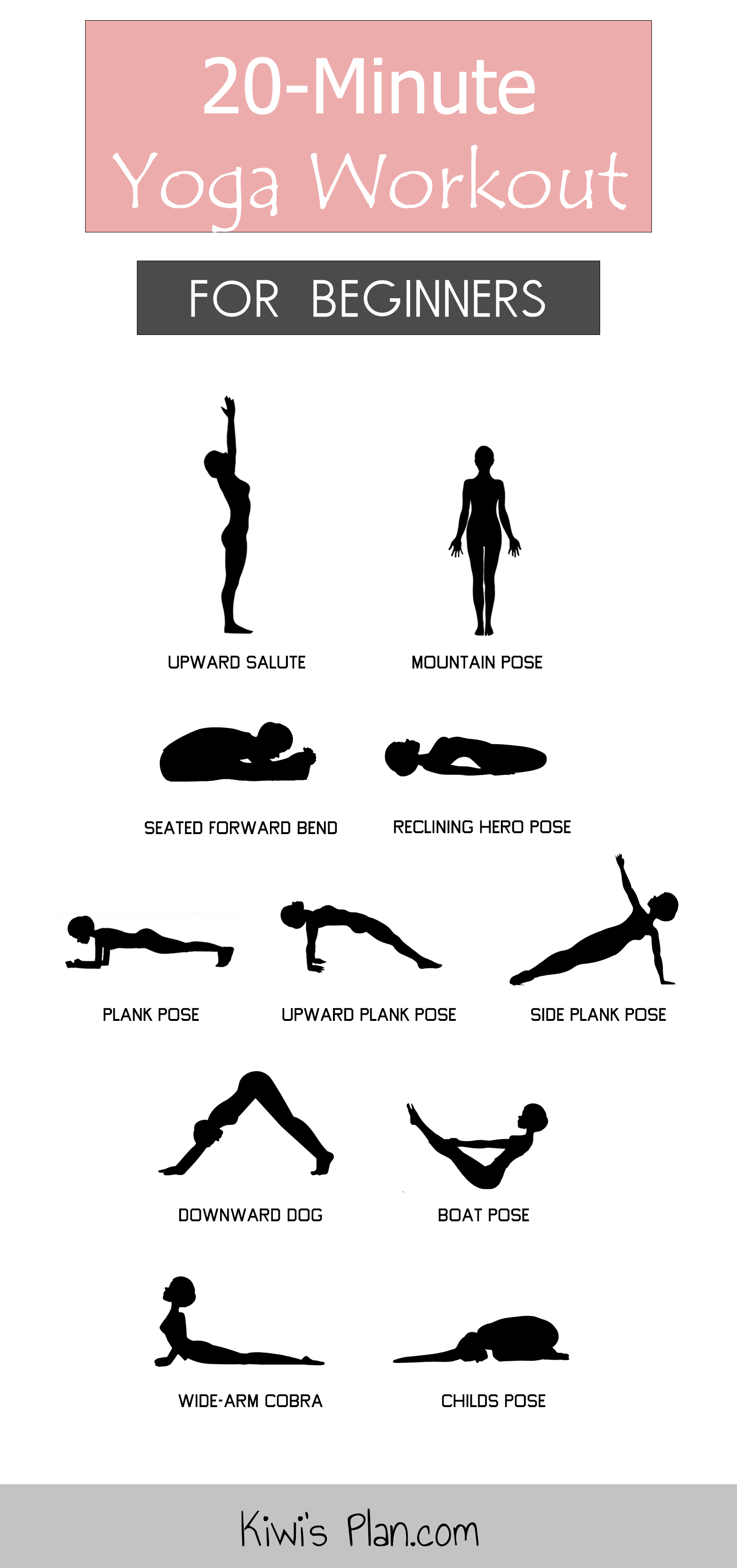
Standing Forward Bend can be a great way to reduce stress and anxiety. This position utilizes gravity to lengthen your muscles and reduce tension. It's especially good for the neck, shoulders, lower back, and neck. Begin by placing your hands on your hips and bending forward at the hips. You can relax your body by keeping your arms at the sides. This pose is a powerful way to clear your mind and overcome your anxieties.
This pose is great for beginners to learn the basic principles of this position. This pose will both energize and calm your body. Extended Puppy Pose, also known as child's pose or downward dog, is a combination between the two. This position lengthens, stretches and calms the spine. Extended Triangle Pose helps with stress, indigestion and neck pain. Fish Position is a good choice to strengthen your chest muscles and mobilise your upper back. Although it can be a great option for some, this is not recommended to anyone who has suffered a serious injury.

The Child's Poses is another option to reduce anxiety. You will be required to lie on your stomach on your knees on the floor, your arms raised above your head. Next, stretch your hips to lengthen your spine and lift your tailbone off the back of the pelvis. Keep your feet flat on a hard surface. Repeat on the other side for as long as you need. The Child's Pose can also help you focus on your intention which could be the solution to your anxiety.
Another option for anxious people is the Backbend. The Bridge Pose requires you to place your hands on your lap and relax your shoulders and chest. After that, you'll close your nostrils. You'll notice that your spine naturally relaxes and all the stress you have will melt away. It's an ideal position to relieve tension and promote relaxation. You can keep the Bridge Pose as long as it takes. It's recommended to practice the Bridge Poses several times daily.
The Head Restpose can help with relaxation. This pose allows you to feel more grounded, and the head resting pose can be beneficial for people experiencing anxiety. This will help you to feel more relaxed, and less stressed. If you have a hard time falling asleep, you should try these poses. This pose is for you if you can hold your head straight. Once you're comfortable, you can fall asleep soundly.

Tree Pose is challenging and requires complete concentration. This pose is not recommended for those who are susceptible to anxiety. During this pose, you should focus on breathing deeply and allowing yourself to relax. While it might take some practice to master the right technique, it will be worth it in the end. You will soon see how posture can help with anxiety and stress reduction.
FAQ
How many times per week should I exercise
It all depends upon how much time you have and what type or exercise you prefer. An average guideline is to do moderate-intensity aerobic activity 3 to 5 days per semaine. It is important not to overdo it. Consistent exercise is essential to achieving maximum benefit from your workouts.
Which exercises work best for you?
It all depends upon your fitness goals. Some people concentrate on endurance activities such running, cycling, swimming. Some people enjoy lifting weights and using resistance bands. There are so many different types of exercise programs available today. You can choose the one that best suits you.
How to build muscles quickly
To build muscle quickly, eat healthy foods and exercise regularly.
Early morning is the best time to exercise. You are awake and alert, ready to take on the day.
It is a good idea to do exercises like push-ups (pushes), bench presses (squats), and so on.
You can try different weight training methods and remember to drink lots of water throughout the day.
How many calories should I consume daily?
This will vary from person-to-person. On average, 2000 to 2500 calories are consumed per day. It is important to consider your lifestyle and determine how many calories you'll need.
Is it true that overeating protein causes kidney stones?
Protein helps maintain healthy bone and tissue. But consuming too much protein can lead to calcium excretion through urine. This can lead to kidney stone formation.
It is important that you note that not all people develop kidney stones when they consume more than 2 grams of protein per kg (2.2 pounds). You don't have to eat a lot of protein to get kidney stones.
Watching your sodium intake can help prevent kidney stones. The kidneys regulate the amount of sodium they consume. High levels of sodium are linked to a greater risk of developing renal stones.
You can also reduce your intake of proteins if you develop kidney stones. The majority of adults need protein for half their daily caloric needs. If you cut back on protein, you'll likely lose weight.
If you do decide to eat more protein, don't go overboard. Limit your intake to 20% of your total daily protein intake.
How can I lose weight by avoiding certain foods?
Avoid foods that contain trans fats. Trans fats increase LDL cholesterol (the bad) and decrease HDL cholesterol (the healthy).
Trans fats can also be found in deep-fried food, fast food, packaged bakery goods, snack cakes, as well as other processed foods.
These unhealthy fats can also lead to inflammation, which can cause heart disease and diabetes.
Avoid eating foods that contain artificial sweeteners. Artificial sweeteners have been linked to an increase in cancer risk.
These chemicals are found in many products, including soft drinks, candy bars, chewing gum, as well as candy bars. They also appear in meat, poultry and eggs.
Artificial sweeteners are saccharin (cyclamate), sorbitol and aspartame.
The American Heart Association advises against using these chemicals, as they could damage DNA.
Is Egg good for man?
All the nutrients that the body needs are found in eggs. It is also good for maintaining strong bones, healthy heart and lungs, as well as stable blood pressure.
Eggs are an excellent source protein, vitamins A,B12, D E, K and calcium. They also contain vitamin B12, D-E, K, calcium and phosphorus.
Egg yolks are high in cholesterol. However, the egg yolk is low in cholesterol. Eggs have less saturated fat than many other foods.
They are also low on calories and sodium. They are also very versatile because you can cook them any way you want. They can be fried, poached, scrambled, boiled, hard-boil and baked.
They are extremely nutritious and simple to prepare.
Each day, you should consume at least 2 whole eggs. You don't have to eat eggs.
Essential nutrients are found in eggs. Try adding them to your daily diet today.
Statistics
- Candidates and applicants must pass all four tests at 70% (minimum level) to graduate from Basic Deputy U.S. Marshal (BDUSM) Training. (usmarshals.gov)
- An estimated calorie range for moderately active adult males falls between 2,200 to 2,800 calories per day, depending on age. (eatright.org)
- 10 pounds in a month is likely during a lean bulking phase, especially for beginners. (muscleandstrength.com)
- According to the American Academy of Dermatology (AAD), men over 50 are at a heightened risk of developing it. (healthline.com)
- By John Thompson Take a whopping 38% off a set of PowerBlock Pros. (menshealth.com)
External Links
How To
How do I lose fat by exercising?
Exercise can help you burn calories and increase your metabolism.
If you exercise with moderate intensity, you can safely lose weight.
These are the top tips for burning fat while you exercise.
-
Cardio exercises include walking, running, swimming, cycling, running and jogging.
-
Exercise for 30 minutes three times per week.
-
You can add strength training into your exercise routine if you're looking to lose even more weight.
-
Avoid intense exercise. It is possible to build muscle without destroying muscle tissue.
-
When exercising, make sure to drink lots of water. Water is essential for flushing out toxins and keeping your body hydrated.
-
After working out, drink low-fat protein shakes. Protein shakes help repair muscles and boosts energy.
-
You can eat smaller meals throughout the day so that you don't feel hungry in between meals.
-
Don't skip breakfast! Skipping breakfast can lead to fatigue and sluggishness.
-
Mental health is important. Stressful situations can affect your metabolism.
-
Keep a positive attitude. Studies show that overweight people are more likely to be obese than those who perceive themselves as attractive.
-
Get enough rest. A lack of sleep makes it difficult to lose fat.
-
Active living is key. Get up every hour and get moving.
-
Maintain a healthy diet. A healthy diet will help you feel fuller for longer.
-
Find relaxation techniques. Your body won't release stress hormones that cause muscle tissue destruction if you have a tense mind.
A balanced diet provides all the nutrients necessary for growth and development.
Eat six small meals each day instead of three large ones. This allows your body time to digest what you've eaten.
To maintain strong bones, you need to consume 500 mg of calcium each day. Calcium is available in dairy products like milk, yogurt, fortified soy beverages, orange juice, cereal, bread, and cereals.
Calcium can be found in leafy green veggies, beans, tofu and nuts as well as seeds, nuts and cheese.
Vitamin D is required for calcium absorption. Vitamin D can be found in egg yolk, fatty fish, and other fortified foods.
Vitamin E plays an important role in skin health. Vitamin E is found in vegetable oils and wheat germ oil, as well as peanuts, almonds and sunflower seeds.
Your body needs zinc for normal immunity function and wound healing. Zinc can be found as a mineral in oysters.
Zinc deficiency could cause fatigue, nausea, vomiting, and depression.
Sugar intake can lead to insulin resistance which causes blood glucose levels to rise. Insulin resistance leads to weight gain.
Insulin resistance develops when there are high levels of free radicals in the bloodstream. Free radicals are molecules that have unpaired electrons, which can cause damage to cell membranes or other parts of your body.
Food additives, pesticides and herbicides, as well as preservatives, smoking and radiation are all sources of free radicals.
Free radical damage can cause cancer, heart disease and diabetes, as well as arthritis, asthma, and other diseases.
Eating a well-balanced diet with antioxidants is the best way to prevent free radical damage. Antioxidants protect against oxidative damage.
Vitamin C (found on citrus fruits), Beta carotene, found in carrots and sweet potatoes, spinach and broccoli, cantaloupe (found in tomatoes, mangoes and peppers), and Vitamin E (found nuts, olive oil and avocados).
Selenium, manganese (and zinc) are other antioxidant nutrients.
Selenium protects cells against oxidative damage from free radicals. Selenium is found in Brazil nuts, tuna, liver, kidney, shrimp, cod, turkey, beef, lamb, pork, and chicken.
Copper protects eyes, brain, lungs and red cells. Copper is found in shellfishes, poultry, meat, organ meats, and other foods.
Manganese is an essential component of bone structure. Manganese is found as a component of bone structure in brown rice (spinach, bananas), prunes, raisins and oatmeal.
Zinc is important for healthy growth, reproduction, and wound-healing. Zn can also be found in white fish, lean cuts of meat, poultry, and eggs.